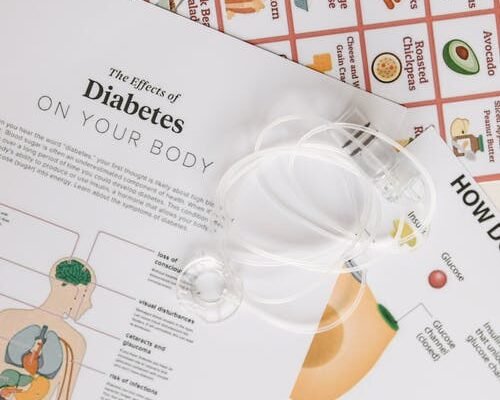 What is it?
What is it?
A lifetime condition that is usually detected in childhood or at a younger age in adults, type 1 diabetes imellitus (T1DM) is brought about by an autoimmune process that damages the beta cells, or the insulin-producing cells of the pancreas. Insulin is an essential hormone for blood sugar regulation and other processes in the body. People with T1DM have impaired insulin production, and such a phenomenon results to hyperglycemia or high blood sugar levels.¹
Some individuals may be predisposed to develop T1DM. People with first-degree relatives who have T1DM and those who have certain genetic mutations and autoimmune conditions are at greater risk of developing this condition.²
What are its symptoms?
Persons with T1DM may complain of increased thirst (polydipsia), more frequent urination (polyuria), and excessive urination at night (polydipsia). Bedwetting may also be seen in children. Weight loss is a manifestation of the insulin-deficient state.
Symptoms that warrant an immediate consultation at the emergency room include difficulty breathing, nausea, vomiting, abdominal pain, fatigue and weakness, and disorientation because these may be indicative of a diabetic emergency known as diabetic ketoacidosis. A fruity odor may also be observed in the breath of the individual.
T1DM may also affect other critical organs and persons afflicted with this condition should monitor for other symptoms such as blurring of vision, numbness of the hands and feet, and should check for the presence of frothy urine.
How is it diagnosed?
T1DM is diagnosed by requesting laboratory examinations. Recommended screening test is fasting blood sugar. If the level is 126 mg/dL (7 mmol/L) or higher on 2 separate occasions is already considered to have diabetes. For T1DM, autoantibody testing is requested. An example of this autoantibody test is glutamic acid 65 antibody (or Anti-GAD 65).
How is it treated?
A well-balanced diet made up of whole grains, fruits, vegetables, protein sources such as fish and meat, and low-fat milk is recommended for persons with T1DM. Sugar-sweetened food and beverages should be avoided. Carbohydrate intake should be monitored so that the optimal dose of insulin could be determined. Proper timing of meals and insulin administration is paramount, to avoid episodes of having low blood sugar, or hypoglycemia.³
Exercise also provides benefits for persons with T1DM. The amount and intensity of physical activity must be accounted for in regulating carbohydrate intake and insulin dosage. It is crucial for persons with T1DM to follow the advice of health care providers in terms of proper nutrition, physical activity, and correct insulin administration and timing so that both blood sugar spikes and dips would not occur.
The mainstay of treatment for T1DM is insulin, which usually consists of multiple dose injections daily. In persons with T1DM, the production of the hormone insulin is compromised; therefore, insulin administration is given as a lifelong treatment. Frequent blood sugar monitoring is crucial so that appropriate adjustments in insulin dosage can be given in times of increased physical activity, illness or stress².
What are its complications?
Persons with T1DM may experience episodes of low blood sugar or hypoglycemia, and this condition may be accompanied by symptoms such as increased sweating, weakness, headache, disorientation, tremors and dizziness.2 Adequate nutrition and suitable timing of food intake can reduce the occurrence of this serious condition. Regular monitoring and follow-up with the physician allow for the timely adjustment of medication to avoid hypoglycemia.
Other vital organs may be affected by T1DM. The blood vessels of the eyes, kidneys and nerves may incur damage in long-standing T1DM, and such microvascular complications are known as diabetic retinopathy, nephropathy, and neuropathy respectively. T1DM confers an increased risk for cardiovascular diseases in the form of ischemic heart disease, stroke, and peripheral arterial disease, which all pertain to the macrovascular complications of T1DM.
When to see an endocrinologist?
It is highly recommended that all patients with T1DM seek consult with an endocrinologist to guide optimal therapy.
References:
- Freeborn, D., Dyches, T., & Roper, S. O. (2017). Lessons Learned From a Life With Type 1 Diabetes: Adult Perspectives. Diabetes Spectrum, 30(3), 188–194. doi:10.2337/ds16-0032.
- Traversi, D., Rabbone, I., Scaioli, G. et al. Risk factors for type 1 diabetes, including environmental, behavioural and gut microbial factors: a case–control study. Sci Rep 10, 17566 (2020). https://doi.org/10.1038/s41598-020-74678-6.
- Nutrition Principles and Recommendations in Diabetes. (2003). Diabetes Care, 27(Supplement 1), S36–S36. doi:10.2337/diacare.27.2007.s36.




